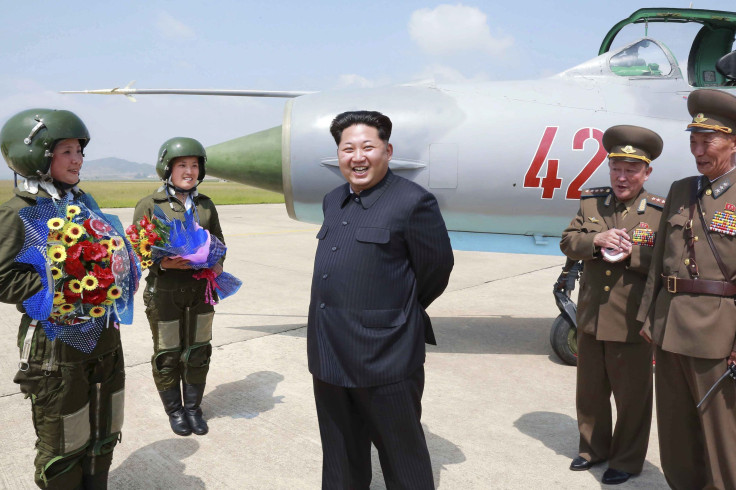Kim Jong Un Bans Harsh Scolding In North Korean Military, Orders Officers To Speak Politely With Civilians

Kim Jong Un, the notoriously brutal North Korean dictator who has had dozens of people -- including his own aunt and uncle -- executed, has a newfound abhorrence for profanity. Kim has reportedly banned harsh scolding in the country’s military and has directed military personnel to speak politely with North Korean civilians, according to Big News Network.
Kim apparently ordered military officers to use “proper language” when addressing North Korean citizens and to refrain from reprimanding their subordinates. He also would like to see a traditional suffix meaning “comrade” reinstated in everyday greetings, South Korean media outlets have reported.
The reported recent language controls weren’t the first time the North Korean leader has attempted to quell speech. In December 2014, Kim banned people from having his name, meaning North Korean parents would not be able to name their children Kim Jong Un. Additionally, anyone with the name was ordered to change it on their birth certificates. “All party organs and public security authorities should make a list of residents named Kim Jong Un...and train them to voluntarily change their names,” a document revealed about the new directive, according to the Atlantic.
News of recent political purges in North Korea have sparked international outrage against Kim. Dozens of people, including high-ranking military officials and even members of Kim’s own family, have been executed under Kim’s rule in recent years. Many of the people murdered were those loyal to his father, Kim Jong Il.
Kim appeared to tour a new airport terminal in Pyongyang, North Korea, recently, according to photos released by state media. The airport includes restaurants and shops but will serve only a few flights, according to the BBC. Flights would carry mostly Chinese tourists and North Koreans traveling to Beijing on official business.
© Copyright IBTimes 2024. All rights reserved.






















